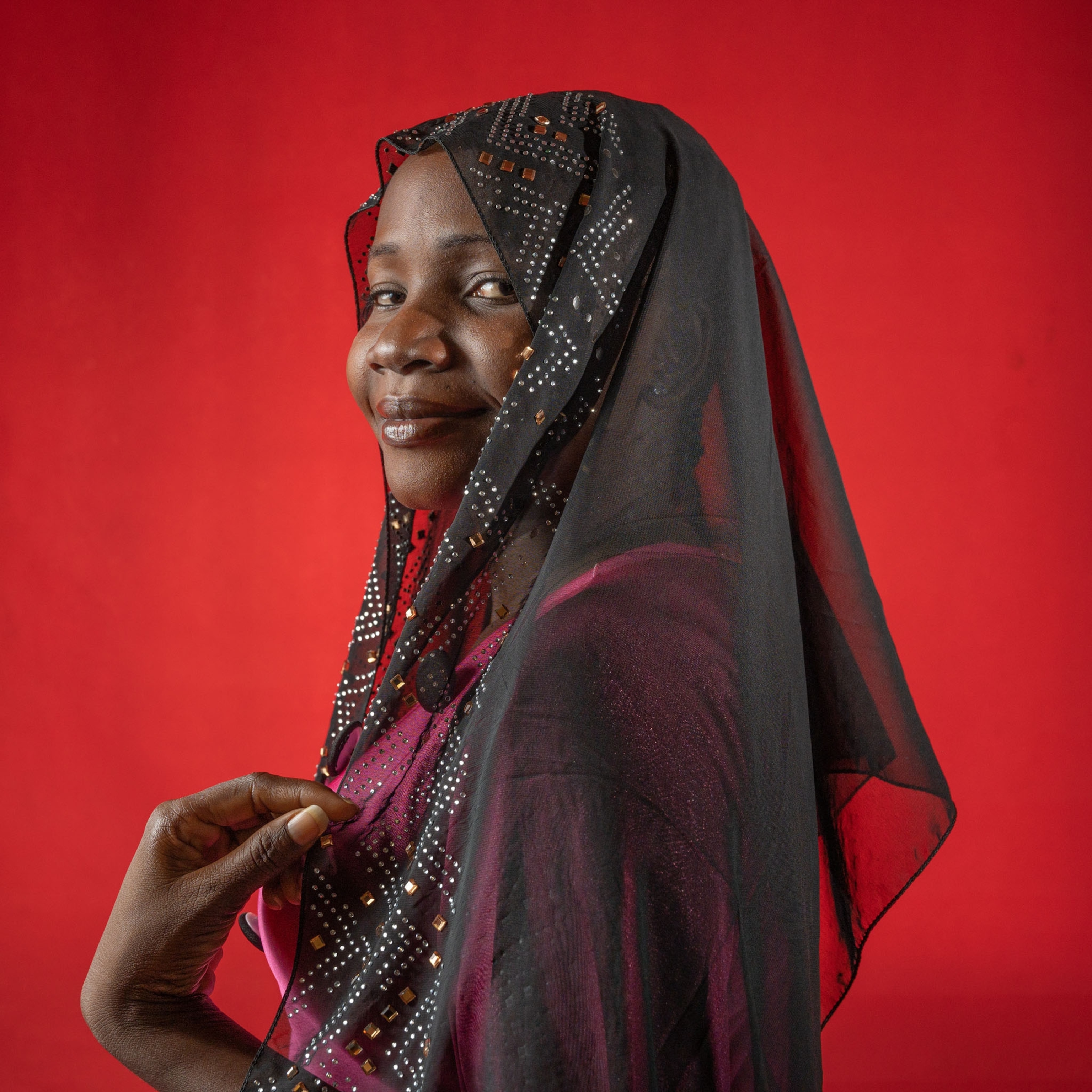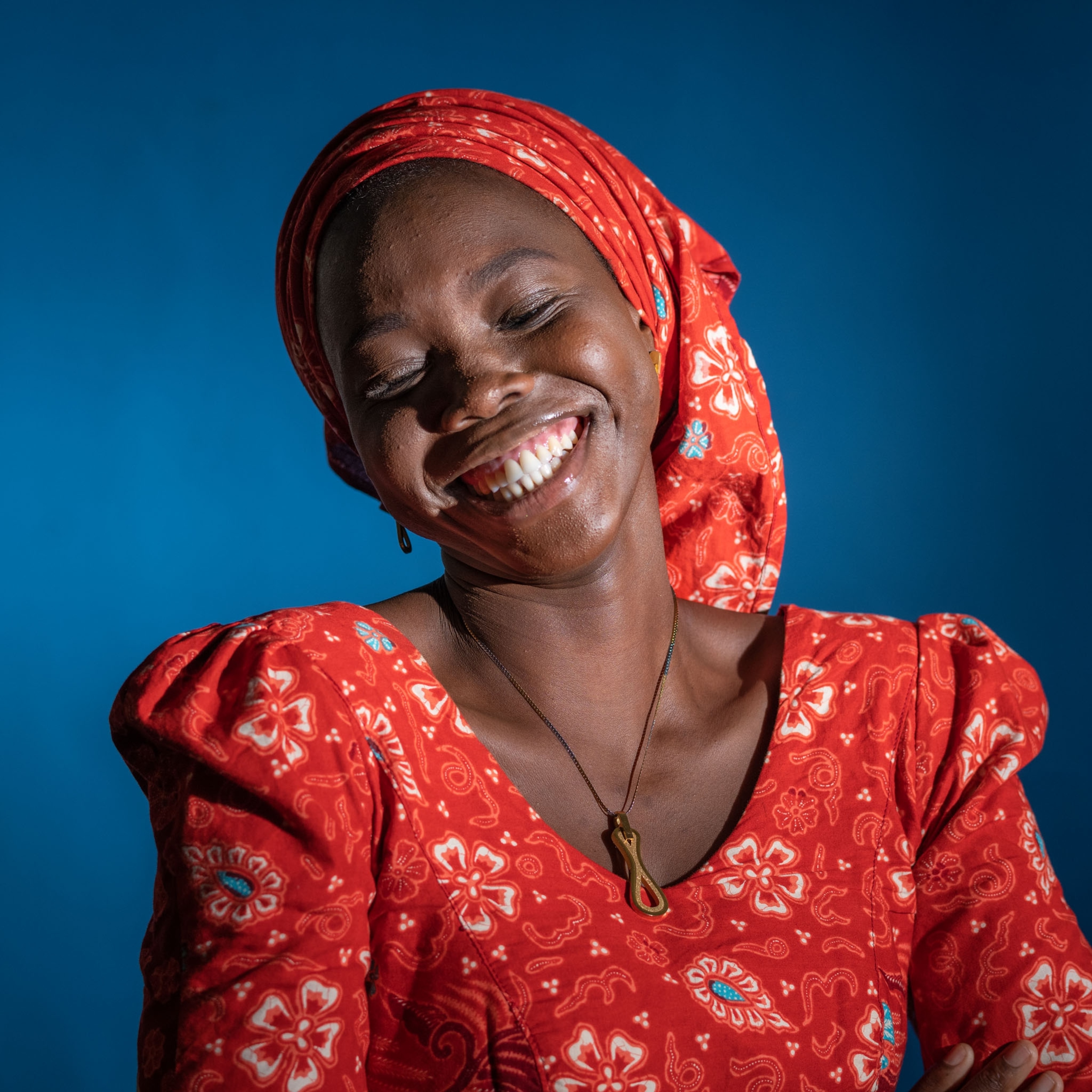Six years ago, Boko Haram kidnapped 276 schoolgirls. Where are they now?
The 'Chibok girls’ kidnapping sparked international outrage. More than a hundred are still missing. Today the survivors are trying to rebuild their lives.

Patience Bulus and Esther Joshua held hands as they were marched out of their dorm room at gunpoint that April night. Herded into the back of an open-bed truck, they lost their grip on each other. Amid the mass of frightened students, Patience heard Esther’s soft voice ask, “What will happen?”
Then someone jumped off the side. Suddenly other girls were tumbling into the darkness, willing to risk being shot or lost in the unknown forest to flee their captors. Patience looked next to her, but Esther had been pulled deeper into the truck. Patience pushed her way to the edge and jumped without Esther.

For five years a rebel insurgency in northeastern Nigeria had terrorized the region and shut down schools. The Government Secondary School for girls in Chibok had reopened in April 2014 for students to take their final exams. In a region where less than half of all girls attend primary school, these students had defied the odds they were born into long before the war reached them. But around 11 p.m. on April 14, trucks of militants from Boko Haram, whose name roughly translates to “Western education is forbidden,” forced 276 girls from their dorms onto trucks and drove toward the lawless cover of the Sambisa forest, a nature reserve the jihadist group had taken over to wage a bloody war against the government.
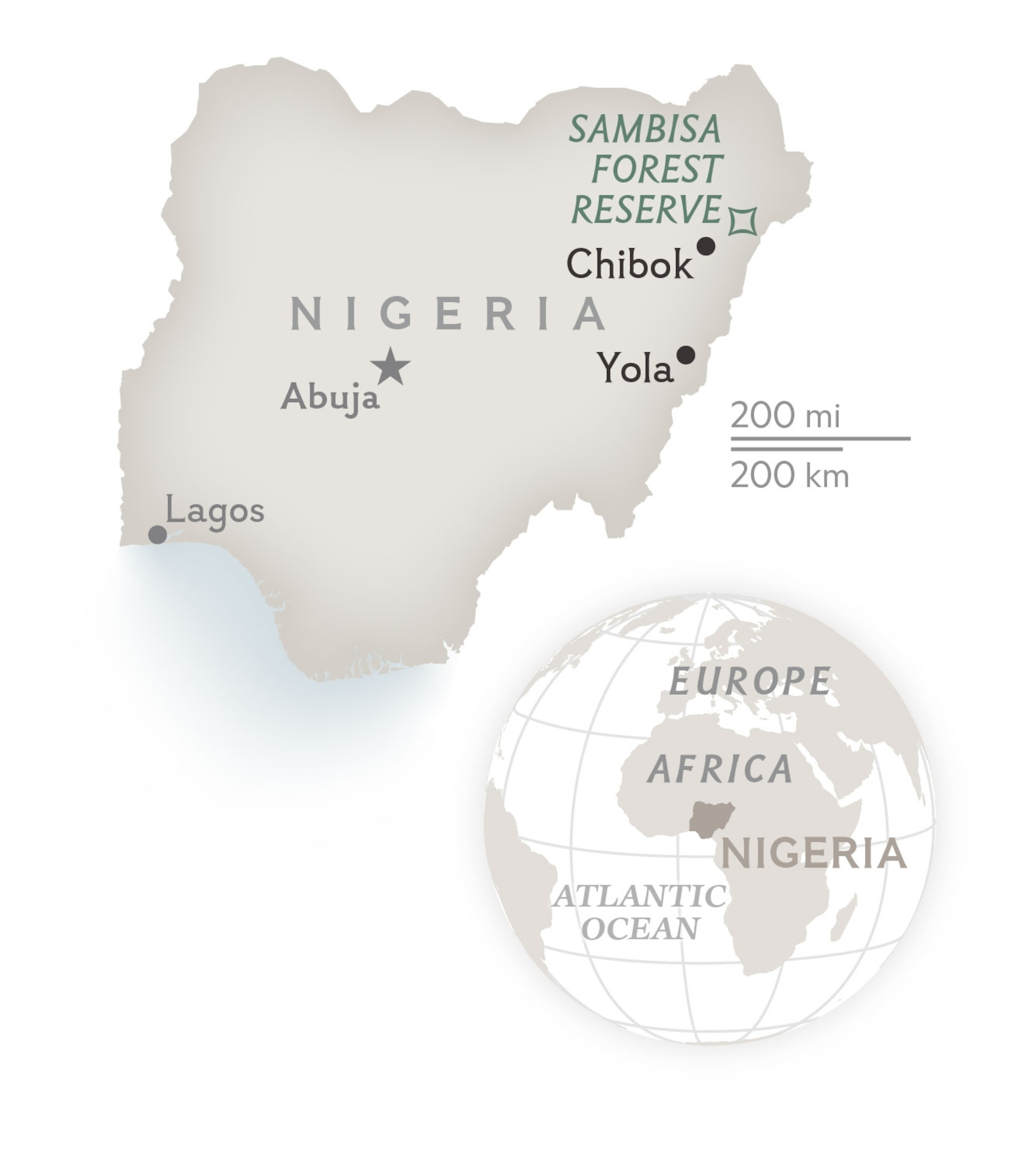
The attack sparked #BringBackOurGirls, an international campaign embraced by then U.S. First Lady Michelle Obama. Chibok, a remote, little-known town before the kidnappings, came to represent some of Nigeria’s most crucial issues—corruption, insecurity, the invisibility of the poor. Media covered every development: The 57 girls who escaped early on; the ordeal of 10 of the girls who wound up in multiple American schools; videos released by Boko Haram showing sullen captives; two emotional releases of a total of 103 girls, reportedly in exchange for money and prisoners; four girls who are said to have fled later on their own.
Of the 276 Chibok students kidnapped, 112 are still missing. Some are believed to be dead. Two and a half years ago, the government arranged for more than a hundred survivors to study at a tightly controlled campus in northeastern Nigeria. Since then, there’s been relative silence.
Patience spent the summer after the abduction in her village of Askira, listening to gospel music and coming to terms, she says, with the idea that the attack had ended her education. Esther’s mother came to visit once, but Patience wasn’t at home. Journalists wanted to know what happened that night; parents asked if she’d seen their missing daughters. Repeating the story of April 14 had become exhausting.
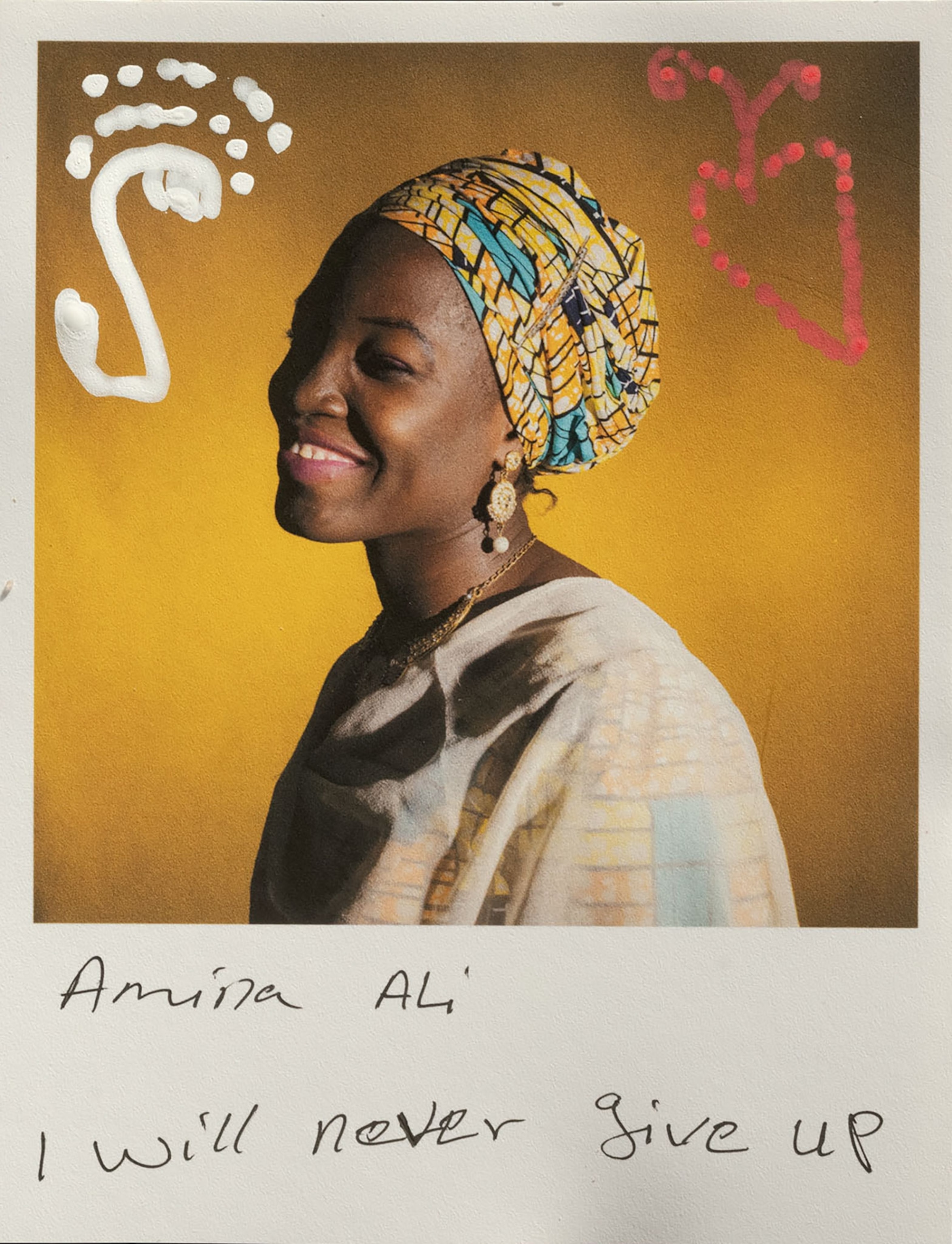
Patience and nine other survivors accepted an offer to study in the United States. She embraced the opportunity, even though neighbors in her village warned her parents that young women get into trouble far from home.
Around the same time Patience was preparing to move abroad, a school security guard visited Margee Ensign, president of the American University of Nigeria (AUN) campus in Yola, a city of several hundred thousand people. She told Ensign that her sister and 56 other girls had escaped shortly after the attack.
Some had jumped from the trucks, grabbed tree branches, twisted their ankles, and then run until they found help. Others, such as Mary K. (who asked that only her last initial be used), had ridden with the kidnappers for hours. When the truck stopped, Mary conspired with her classmates in their local dialect: They’d split into groups of two, ask to use the bathroom, and then run. The kidnappers, arguing among themselves, failed to find them. It took Mary 24 hours to get home, and when she finally did, she found her village engulfed in fighting. Ensign and her staff drove to Chibok and returned with two vans of survivors who wanted to continue their education at AUN.
“We weren’t ready,” Ensign recalls. “Boko Haram was still in the area. But it wasn’t a hard decision.” Two dozen students settled into the university’s campus, encircled by a high wall and secured by guards in crisp, red uniforms. The prestigious school attracts children of government ministers and ambassadors, and Ensign knew the students from Chibok—who came from poor-quality government schools, spoke almost no English, and had just survived a terrorist attack—would be at a serious disadvantage.
Ensign called a meeting and appointed a tall, no-nonsense Detroit native named Reginald Braggs to help them finish high school. He set up the New Foundation School (NFS), a tailor-made program to prepare the 24 young women from Chibok for college. It offered extracurriculars like music lessons and shopping trips. Seniors from the university’s honor society mentored them.
Over the next two years, none of the missing students were released. Rumors of nightmare conditions in captivity—forced marriages, enslavement, starvation—were omnipresent. Then, in May 2016, Chibok student Amina Ali escaped from the forest with her baby. Five months later, Nigeria’s government reportedly offered Boko Haram cash and prisoners for the release of 21 girls. Severely malnourished, they were taken to a hospital in Abuja, the capital, to be assessed by a psychiatrist, physician, sports therapist, imam, and social worker. They said the militants had given them a choice: Convert to Islam and marry, or become slaves. Most chose slavery, the media reported.
In May 2017, 82 more girls were released. Their tearful reunion with their parents was broadcast around the world. In the U.S., Patience Bulus watched news footage, scanning the names of those rescued. Her heart leaped when she landed on Esther Joshua.
Patience recalled the day Esther transferred to Chibok from another school. Patience had sized her up and decided she’d make a perfect sidekick: They were from the same tribe and in their next-to-last year in school. Soon they were inseparable and planned to spend part of the summer of 2014 together at Esther’s house. When Patience learned that her 103 recently freed classmates would join those studying at AUN, she texted a friend: When Esther arrives in Yola, tell her to call me.
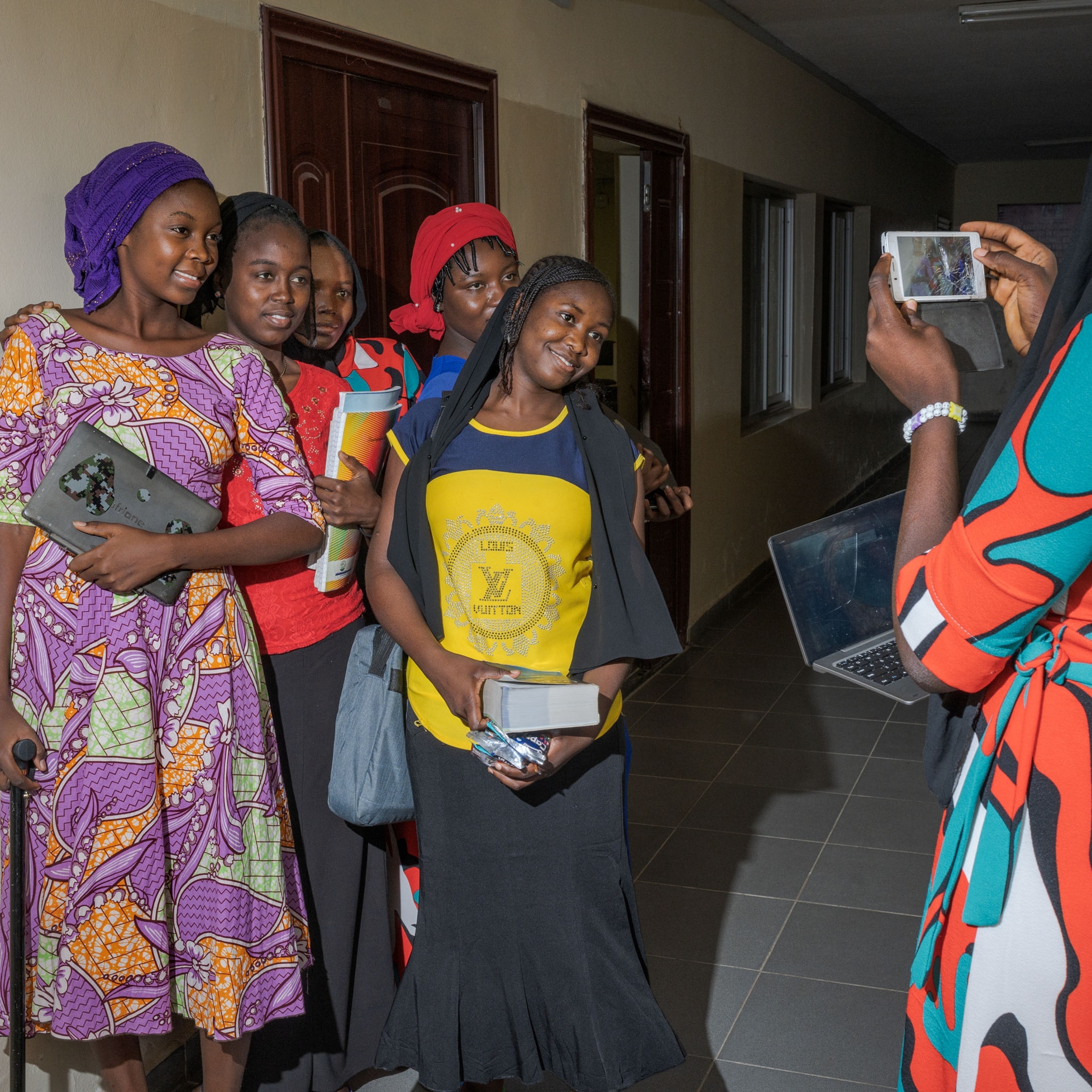
Early one September morning in 2017, a chaotic scene unfolded in the domestic terminal of the Abuja airport. More than 100 teenagers tugging large suitcases and taped-up boxes streamed into the departure gate. Alarms screeched as they moved through metal detectors without pausing. A number of policemen began to yell. The teens' muscular security escort pulled an officer aside and leaned in close. “These are the Chibok girls,” he said. None of them had flown commercial before. “Can you allow them through?” he asked. The policeman was surprised but agreed.
Soon the plane touched down in Yola, a hot, dusty city in northern Nigeria. The group piled into eight buses and was delivered to the campus of AUN.
That morning, the university went from housing and educating 24 Chibok students to 130. The young women settled into a quiet existence of studying and praying. Esther was intimidated by the busy university. In Chibok, there had been no laptops or yoga or karaoke nights. In Yola, recreation rooms were outfitted with televisions, plush couches, and motivational sayings painted on the walls. The dorm was divided into four “houses,” each named for a famous woman.
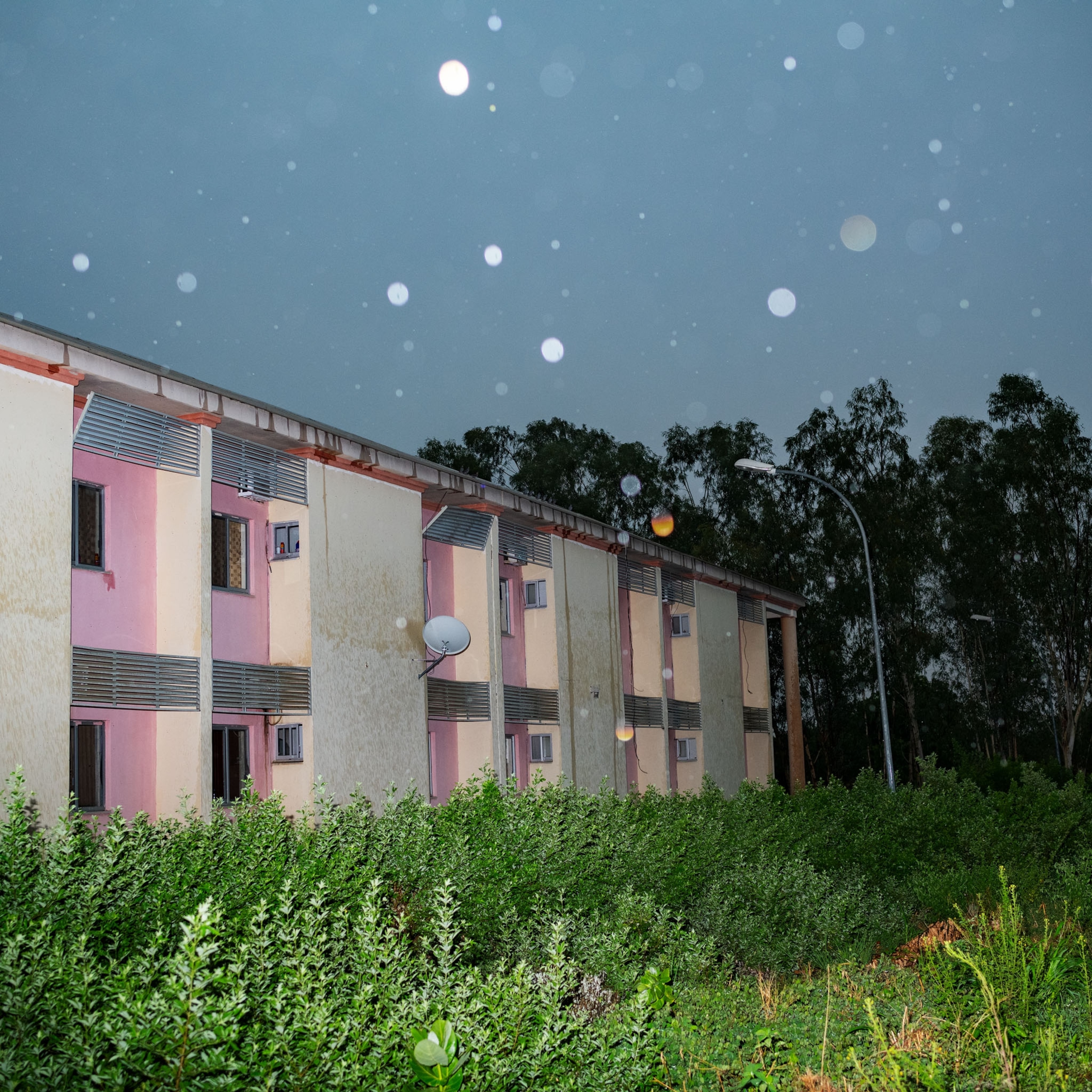
Soon after Esther arrived, another student passed on Patience’s message. On the phone, Esther told Patience everything that had happened in the forest and swore her to secrecy. “Don’t let it stop you,” Patience advised. “This is our best opportunity to make something good.”
In a four-bed dorm room, Esther stacked her new books onto shelves and emptied her suitcase into the wardrobe. Her new computer quickly filled up with selfies and pictures that Patience sent over WhatsApp.
At first the new students kept to themselves, eating in their own building and going to the gym early on Saturdays. Before long, they began dining in the main cafeteria, and some attended classes in the library.
But they are not regular students. Boko Haram pledged to kill them if they returned to school. Guards watch their building and follow them whenever they leave. On campus they have a 24/7 support system: 11 student affairs “aunties” who live in the dorms, a nurse, and a walk-in psychologist’s office. Some have bullets and shrapnel still lodged in their bodies. One has a prosthetic leg. Another walks with a cane. Most spent nearly three years in captivity and wrestle with lingering trauma. AUN officials say the protection is necessary. But some see it as sheltering them.
“After they were first released, they were kept together by the government in some facility in Abuja. After that, they were shipped off to AUN,” said Anietie Ewang, the Nigeria researcher at Human Rights Watch who has closely followed the case. “It feels like at every stage they’ve been secluded.”
Over the years the students from Chibok have been paraded in front of cameras when it has served a purpose. When they were in Boko Haram captivity, the shocking image of hundreds of girls in gray hijabs was a sign of the once scrappy group’s rise to power. Once they were in government custody, a colorful press conference with the president just a day after their rescue offered the government a political triumph. Now, they are grown women. When will they choose how their story is told?

The Nigerian government and private donors are covering the costs of at least six years of education for each student. Some are eyeing law school. Others plan to become actresses, writers, accountants. Fifteen have graduated from the NFS high school program and are studying at the university.
Mary K., who escaped on the day after the kidnapping, arrived on campus in 2014, unable to speak English. After two years, she was accepted to AUN. The transition wasn’t easy. She knew other students gossiped about her, and thought about transferring to another school. Now she roams campus and seems to know everyone. Once a week she mentors a group of NFS students on how to manage their time, perfect their English, and pass the three standardized tests they need for AUN admission. This year she’s spending a semester abroad, in Rome.
Not all the survivors of Boko Haram’s war have such opportunities. In Borno State, the epicenter of the crisis, classes were canceled for two years. There and in two neighboring states, roughly 500 schools have been destroyed, 800 are closed, and more than 2,000 teachers have been killed.
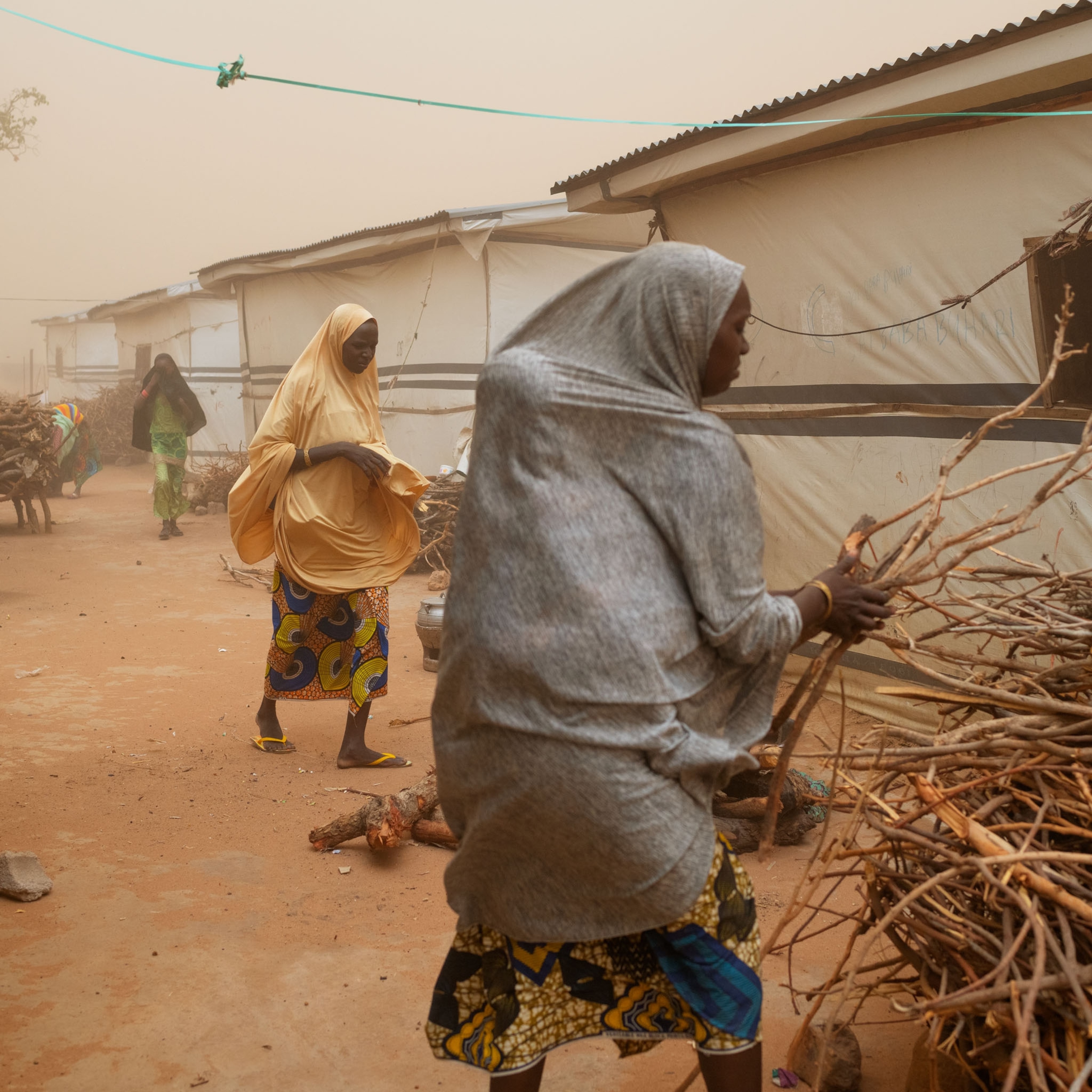
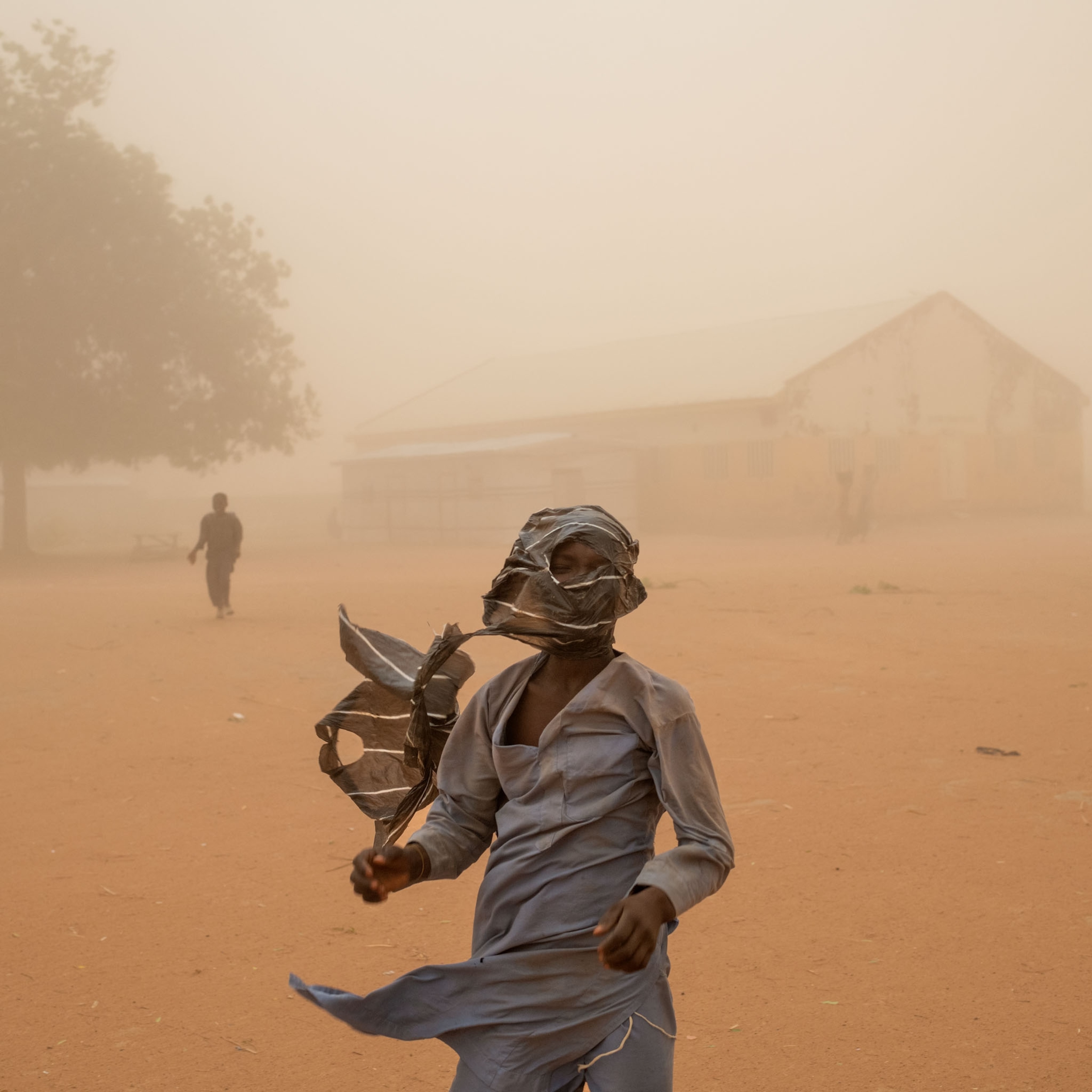
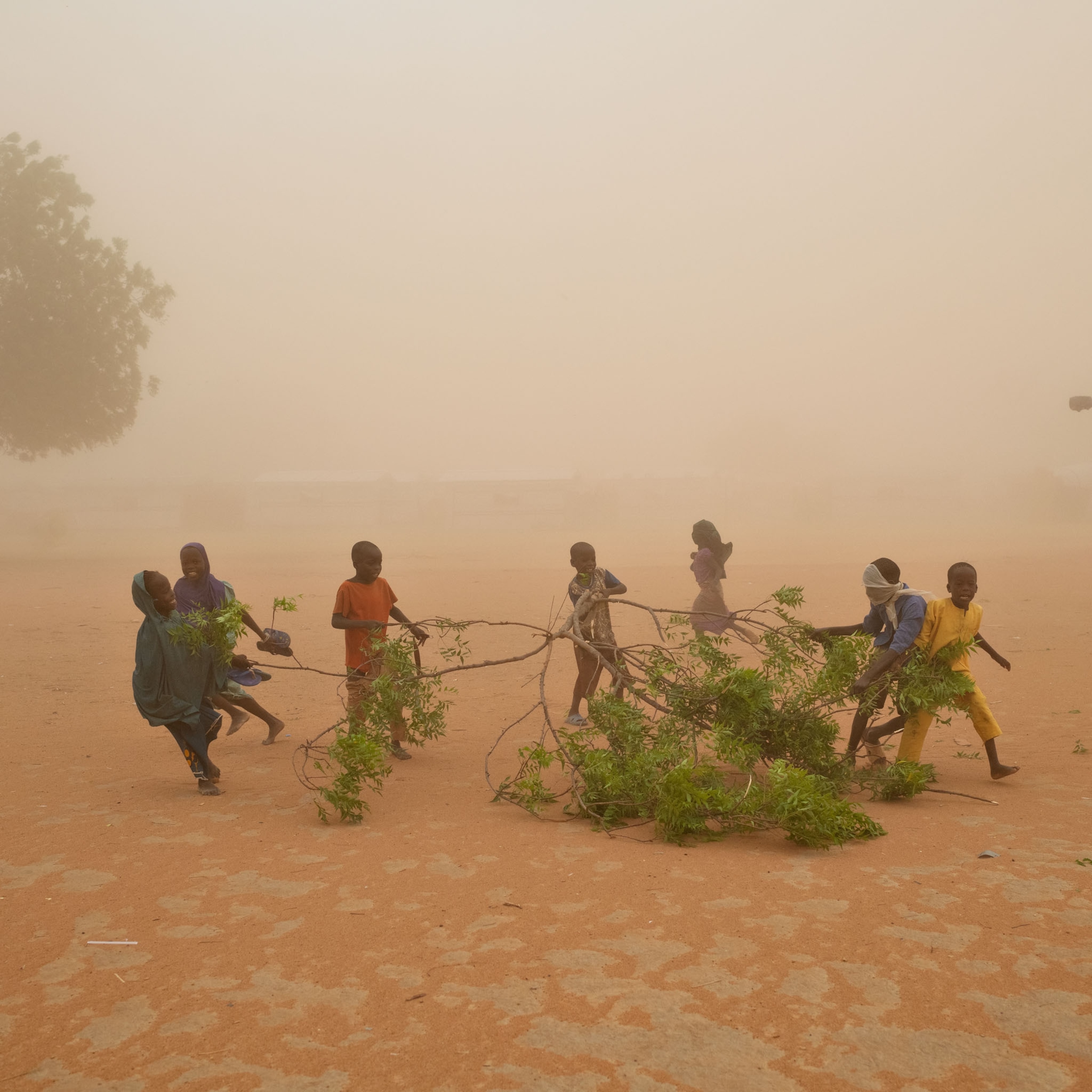
Fifteen miles from AUN’s campus, Gloria Abuya gets up at 5 a.m. and walks two hours to school from the 2,100-person camp for displaced people where she lives. When Boko Haram militants first arrived in Gloria’s hometown of Gwoza in 2014, they killed the men and ordered their wives to bury the bodies. Later, they took the girls. Gloria spent two months in captivity before escaping one night as her captors prayed.
Many women held prisoner by Boko Haram return to communities that fear them and families that shun them. Gloria doesn’t know when, if ever, she can resume her old life. “There’s nothing left at home to go back to,” she said.
In May 2019, a week before the start of their summer vacation, the Chibok students prepared to mark the anniversary of their release from captivity. “It’s very sad because we remember our sisters in the forest,” said Amina Ali, as she dressed for dinner after a day of rehearsals for the day’s events. “And here we are, happy.”
The next day the drama club performed a play in which two girls were kidnapped for ransom and their families fought to bring them back. The script poked fun at ineffective police, lazy elected officials, and greedy kidnappers. When the captives were freed and reunited with their families, the audience burst into applause. At the end, a row of students read messages for their missing classmates before a balloon release.


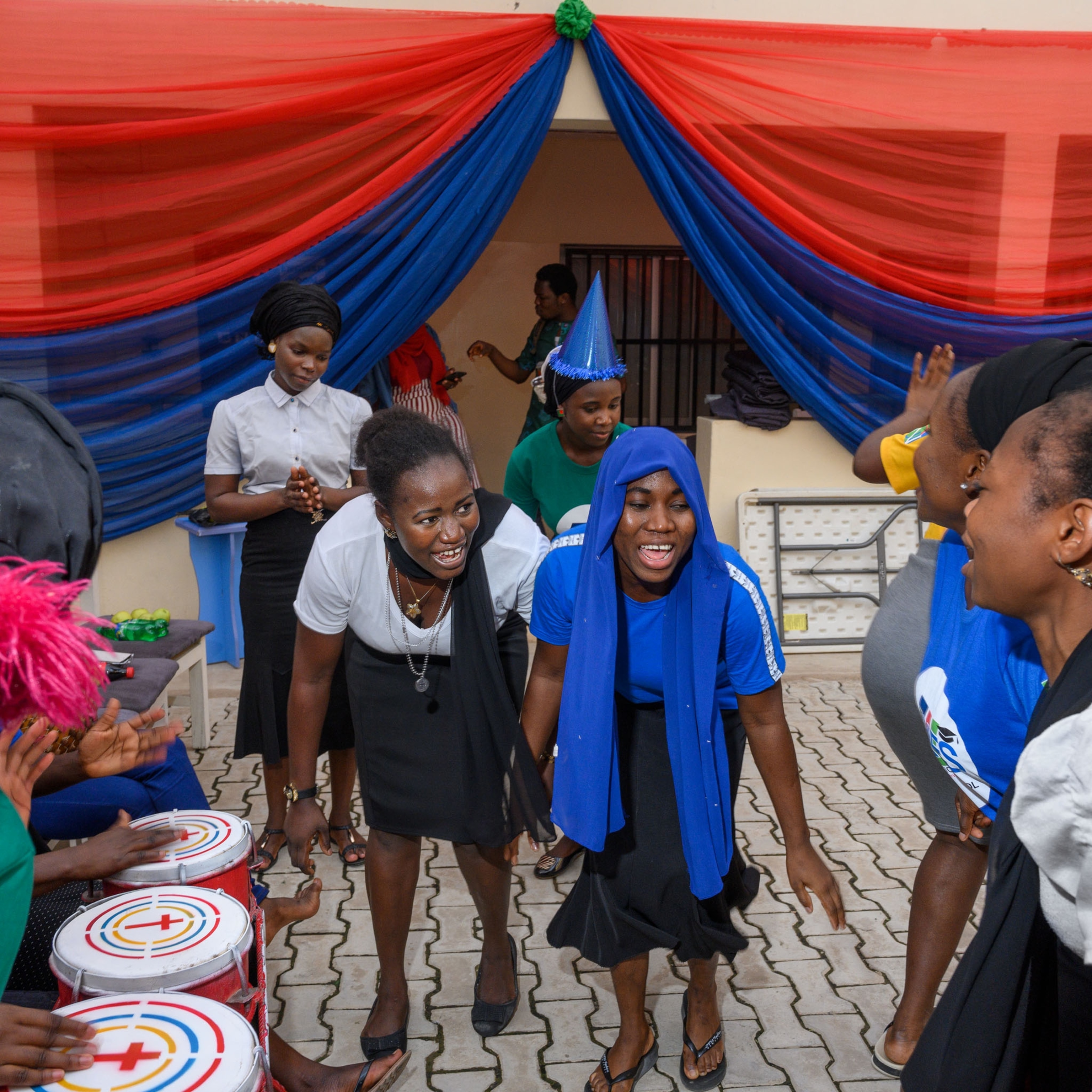
“Dear sister, I know the angels are watching over you.”
“Dear sister, I feel you walk beside me.”
“Dear sister, I can’t wait to see you again.”
Three families of missing girls who live in Abuja say they have no number to call for updates, have no warning before news comes out, and have had no contact with the government since a tense meeting with President Muhammadu Buhari in 2016. The government now rarely comments. Last April, the fifth anniversary of the abduction, Buhari released a message assuring Nigerians that “diverse efforts are being intensified to secure the release of the Chibok girls.”
Even now, there are so many mysteries about the night of April 14, 2014: Why did the military claim the girls had been freed shortly after the attack? Is it true that a British Air Force mission located the missing girls in the Sambisa forest and offered to rescue them, but the Nigerian government declined? (The then president has denied these reports.) Why have the kidnappings not stopped? Since Chibok, 300 elementary schoolchildren were reportedly abducted in Damasak, and 110 boarding school girls were kidnapped in Dapchi. (Some students died in the Dapchi attack, and later all but one were freed.)
“Look at the area,” said Hamsatu Allamin, an activist from northern Nigeria who's spent a decade documenting the war’s dead and disappeared, of the sparse landscape around Chibok. “There are no roads, no trees, nothing. How can they just disappear?” She has petitioned for an outside investigation, but none is forthcoming. Billions of dollars have poured into Nigeria to combat Boko Haram and help rescue the missing. These girls, and the international attention they attracted, she said, have become a business. “Boko Haram is a complete moneymaking venture for our leaders, the army, and the kidnappers.”
In a small office in Abuja, Allamin named emptied towns, groups of unknown children who've disappeared, abducted convoys, bride kidnappings. She held her head in her hands and squeezed her eyes shut. UNICEF estimates 1,000 children have been abducted since 2013, and the Red Cross says 22,000 people have been reported missing in the conflict. Allamin believes the figure is much higher. “When you want to destroy a society,” she said, “target the women.”
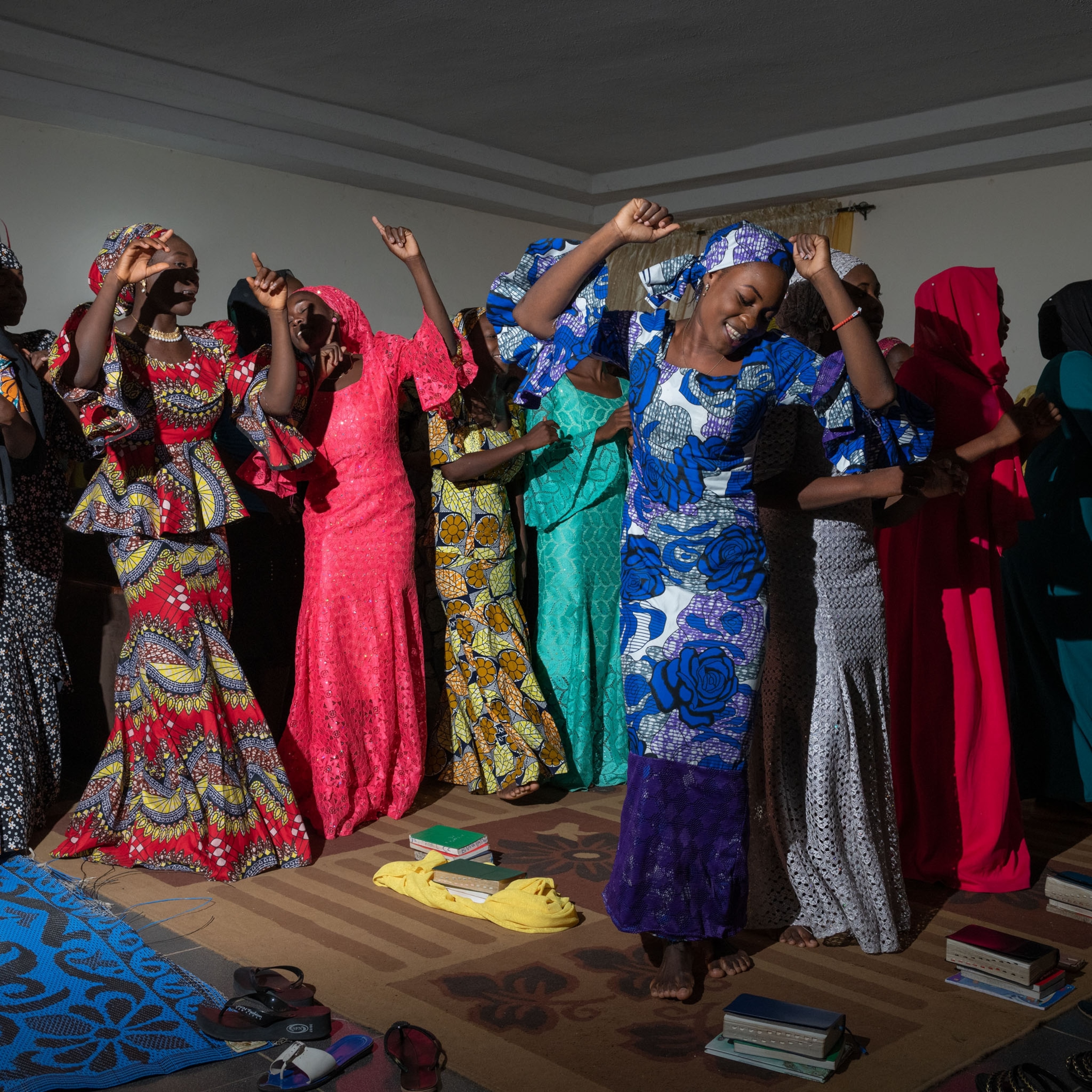

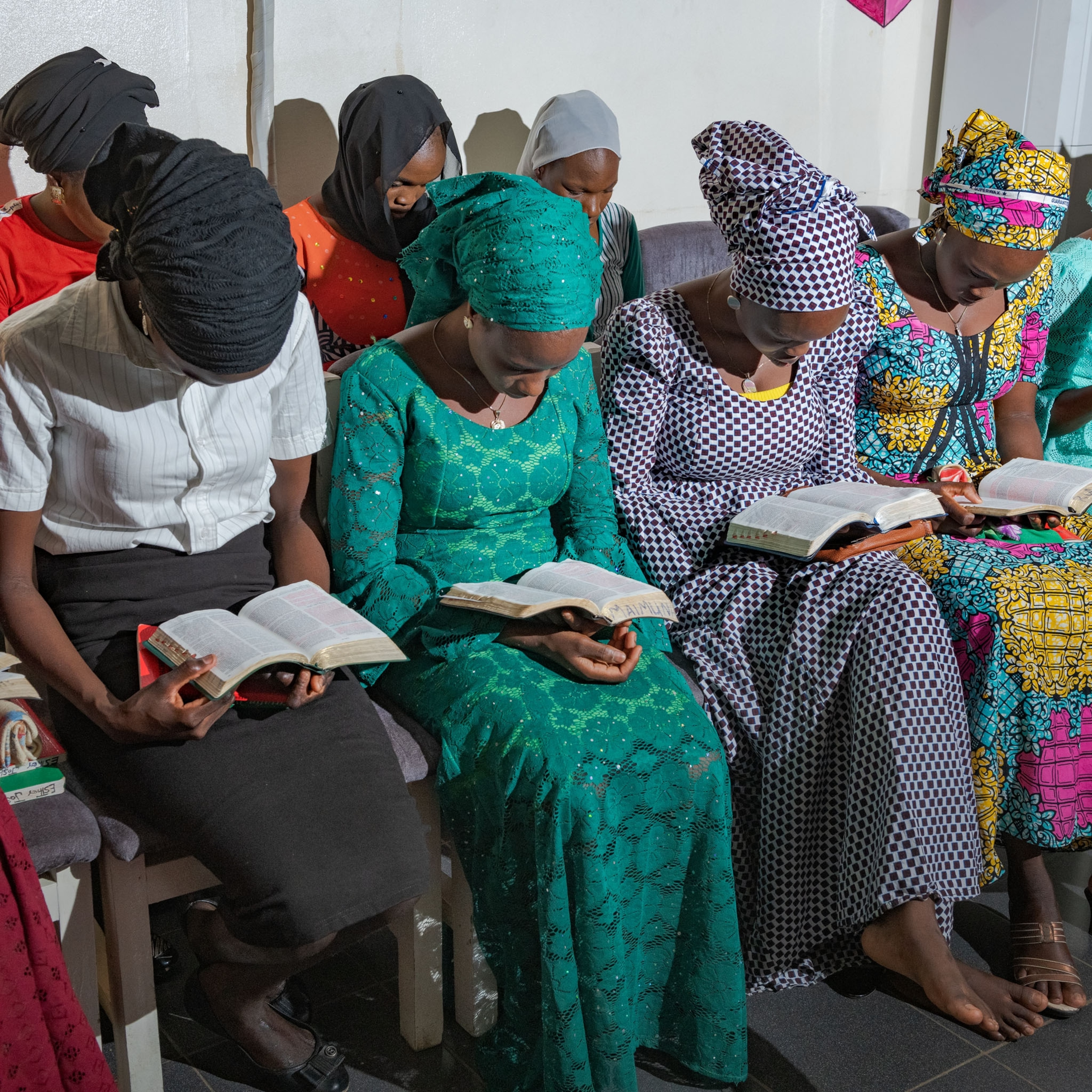
A few unique factors propelled the Chibok kidnapping to the national and then international stage: the number of victims, the fact that they were taken from school, and the organized efforts of the community to publish their names and photos. For weeks after the kidnapping, Nigerians with signs and duct-taped mouths swarmed Unity Fountain, a sparse park sandwiched between lanes of speeding cars in central Abuja. The hashtag #BringBackOurGirls became a global cry.
Six years later, a handful of protestors are left. The prevailing attitude in Nigeria, said a businesswoman named Aisha Yesufu, who wore a red hijab with “Bring Back Our Girls Now” printed on the front, is that most of the girls have returned and society should move on.
Every day at 5 p.m. she and a few others gather in the same park for a quick protest. “When will we stop?” Yesufu bellowed. Cars honked, and the sky threatened to release another torrent of rain on a wet spring day.
“Not until they’re back!” the men around her responded. All but one of them were related to a kidnapped student. “The fight for Chibok is the fight for the soul of Nigeria!”
“As long as one person is out here demanding return of our Chibok girls, the universe will echo it,” Yesufu stated confidently. They took down their banner and dispersed.
That echo is a whisper now, and there has been near silence from the government since the second group of students was released. Still, those 112 remain missing. Where are they?
Their parents have no idea. On a small hill behind a neighborhood of embassies and mansions in Abuja, Rebecca Samuel lives in a crammed cinder block home. Her daughter Sarah is among the missing students. Three pictures she keeps in her purse show Sarah as a five-year-old graduating kindergarten, a sassy 14-year-old, and a serious teen dressed in white. When 82 girls were released in 2017, Samuel rushed to the hospital where they were held. Security wouldn’t let her in.
As summer 2019 approached, AUN got word that militants had burned down the houses of several Chibok students’ families. The head of security, Lionel Rawlins, discouraged the young women from returning home, but 90 or so decided to go anyway. For some, it was only the second summer since their release, and they were desperate to see their families.
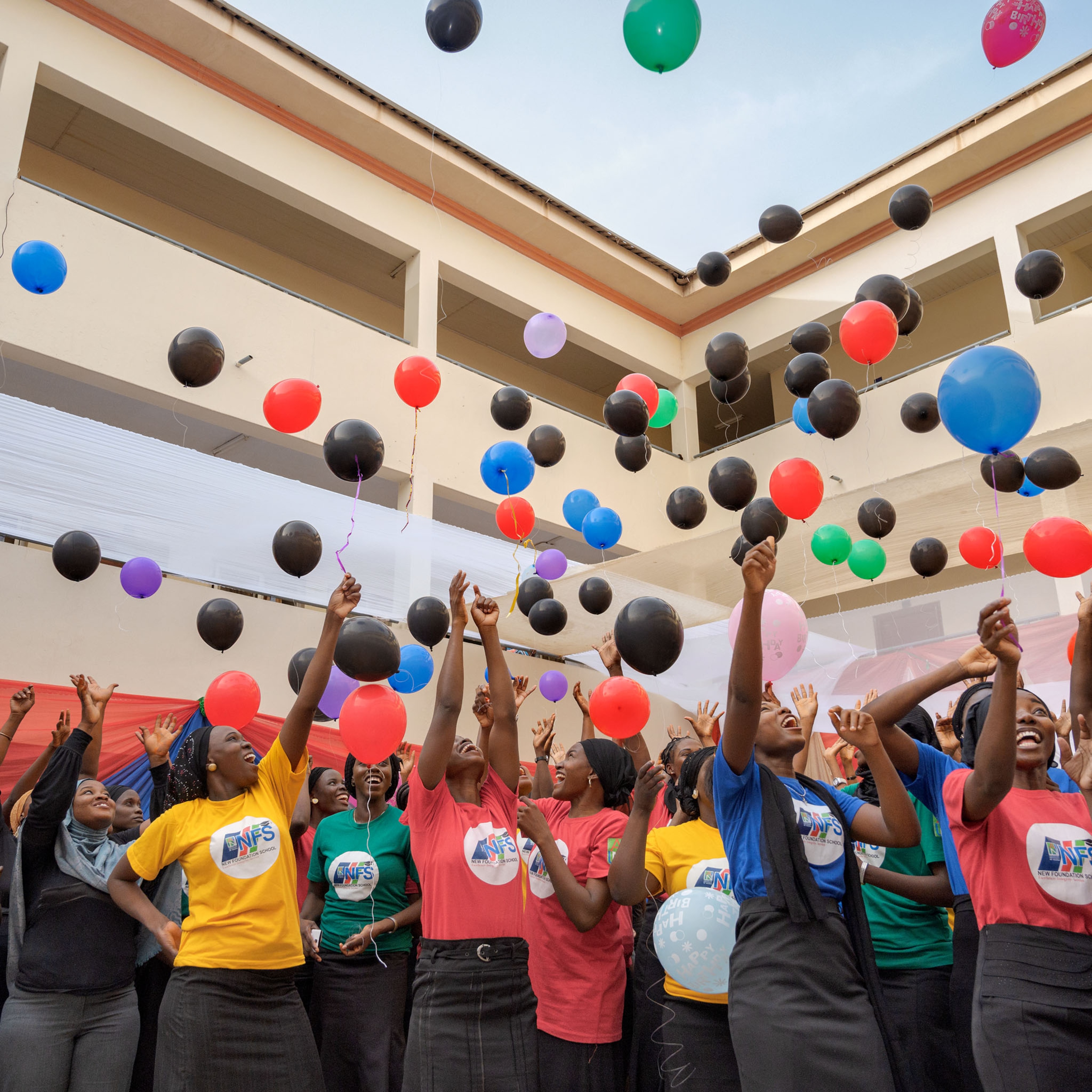
AUN worries about more than security: Most of these women are in their 20s, and in this region it’s unusual for them to still be in school. If they hadn’t spent years in captivity, many would be starting families. The previous fall, eight students didn’t return to school, and half of those were said to have gotten married.
On the Sunday before they left for home, a pastor joined them for a sermon. “Some of you have passed through terrible things, through the shadow of death,” he preached.
“AMEN!” they replied.
“Some of you are about to travel. Some of you are afraid.” His pitch climbed. “Do not be afraid! If you live in fear, you are attracting danger.”
Grace Dodo, a statuesque student who walks with a cane, tilted her head and joined in: “Yes!”
“I want you to go and come back and finish your education,” the pastor said.
While Esther Joshua packed for a trip to see her family, Patience Bulus spent the summer far from home, on the idyllic campus of Dickinson College in Carlisle, Pennsylvania. In 2018 former AUN president Margee Ensign opened a college-prep program at Dickinson, where she’s now president. She enrolled four Chibok survivors.
Patience studied quietly, blending in among the international students. Then in April 2019 she spoke on a panel at the U.S. Capitol about the crisis in Nigeria. Soon, Dickinson students began to recognize her broad smile and colorful hair wraps on campus. They’d approach and ask to hear her story. She’ll tell it now. Why not? She plans to study psychology and become a therapist or work with refugees. She’s stopped going to therapy sessions herself and has started seeing a career counselor.
“I’ll never forget,” Patience said, “but I’ve started to pretend like I forget. I have to move on with my life.”




